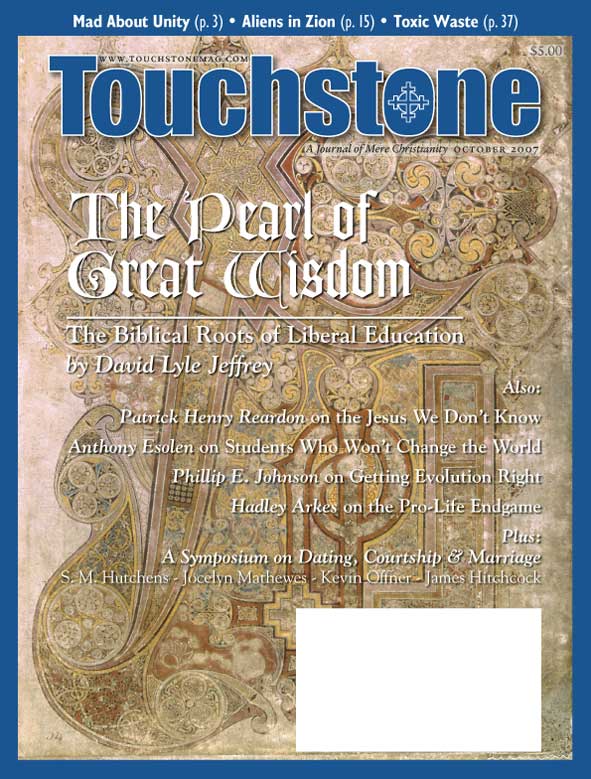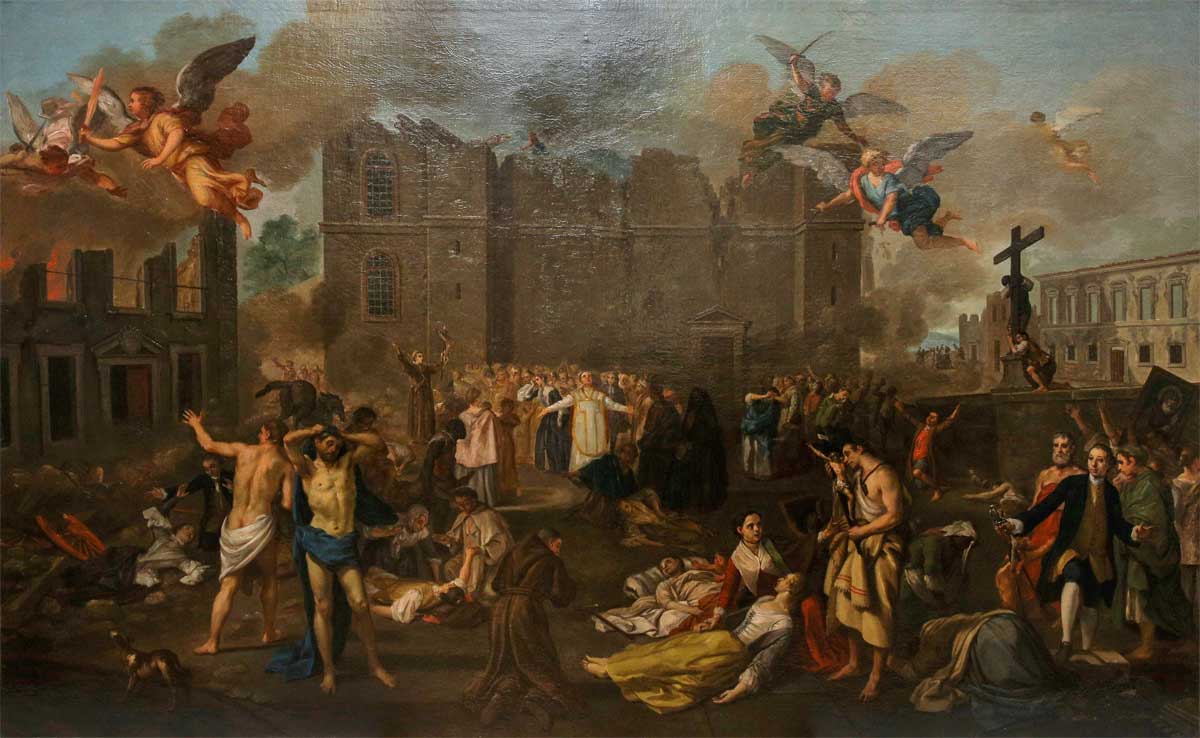God’s Fences
A Secular Faith: Why Christianity Favors the Separation of Church and
State
by Darryl Hart
Ivan R. Dee, 2006
(274 pages, $26.95, hardcover)
reviewed by Robert W. Patterson
Augustine is often praised for answering in The City of God the charge that the fall of Rome was caused by the rise of Christianity and the neglect of the worship of the old gods under whose blessings Rome had presumably risen to prominence. He is less remembered, however, for his corrective to the Christians of his day for misconstruing the relationship between religion and society.
Like the pagans, the Christians had been surprised and demoralized by the sacking of Rome. Because Christianity had become the religion of the empire under Constantine a century before, many believers presumed that civic acknowledgement of the Christian faith would safeguard the greatest empire on earth.
Augustine warned his flock not to confuse the eternal City of God (the church) with the temporal City of Man (Rome), encouraging them to set their sights on the city without foundations, whose builder and maker is God. Even the best of human civilizations are corrupt and will pass away. Only the kingdom of God will prevail when Jesus returns at the end of the age.
Augustine Ignored
One might presume that the parallels between the late Roman Empire and the United States today would endear American Christians, many of whom consider their country “an almost chosen people,” to the bishop of Hippo. But Darryl Hart, an accomplished historian and contributing editor of Touchstone, demonstrates in A Secular Faith how American Protestants have largely ignored Augustine’s lessons about the purposes of God in history, how the Christian faith relates to society, and the different spheres of church and state.
Following his Lost Soul of American Protestantism and That Old-Time Religion in Modern America, his latest work seeks to deconstruct the prevailing consensus about religion and public life. He wants to break the current obsession with how the latter needs the former and introduce the more vexing question of whether the whole paradigm has been good for the church.
An Orthodox Presbyterian elder, Hart concedes that while it transformed the Republican party, the “tsunami of faith-based politics” that began in 1980 exacted a huge theological cost. “Efforts to use Christianity for public or political ends fundamentally distort the Christian religion” because Christianity is “essentially a spiritual and eternal faith, one occupied with a world to come rather than the passing and temporal affairs of the world.”
Appealing to the provisional nature of the church as a foretaste of the kingdom that Christ will consummate when he returns, Hart calls upon his fellow believers to embrace a secular faith, one that entertains no illusions of “immanentizing the eschaton” or establishing heaven or even a redeemed society on earth. Christianity is all about grace, mercy, and hope for pilgrims who live among many civilizations, all of which are perishing.
In this way, Christianity is secular, an English adjective taken from the Latin seculorum, which means age, period, or generation. Christians are to live “hyphenated lives” as citizens of both cities, rendering to Caesar the things that are Caesar’s but never their hearts, which belong only to God.
Robert W. Patterson is a former Presbyterian minister who is now Research Fellow of the Howard Center for Family, Religion & Society and writes on domestic policy issues in Washington, D.C.
subscription options
Order
Print/Online Subscription

Get six issues (one year) of Touchstone PLUS full online access including pdf downloads for only $39.95. That's only $3.34 per month!
Order
Online Only
Subscription

Get a one-year full-access subscription to the Touchstone online archives for only $19.95. That's only $1.66 per month!
bulk subscriptions
Order Touchstone subscriptions in bulk and save $10 per sub! Each subscription includes 6 issues of Touchstone plus full online access to touchstonemag.com—including archives, videos, and pdf downloads of recent issues for only $29.95 each! Great for churches or study groups.
Transactions will be processed on a secure server.
more from the online archives
calling all readers
Please Donate
"There are magazines worth reading but few worth saving . . . Touchstone is just such a magazine."
—Alice von Hildebrand
"Here we do not concede one square millimeter of territory to falsehood, folly, contemporary sentimentality, or fashion. We speak the truth, and let God be our judge. . . . Touchstone is the one committedly Christian conservative journal."
—Anthony Esolen, Touchstone senior editor









